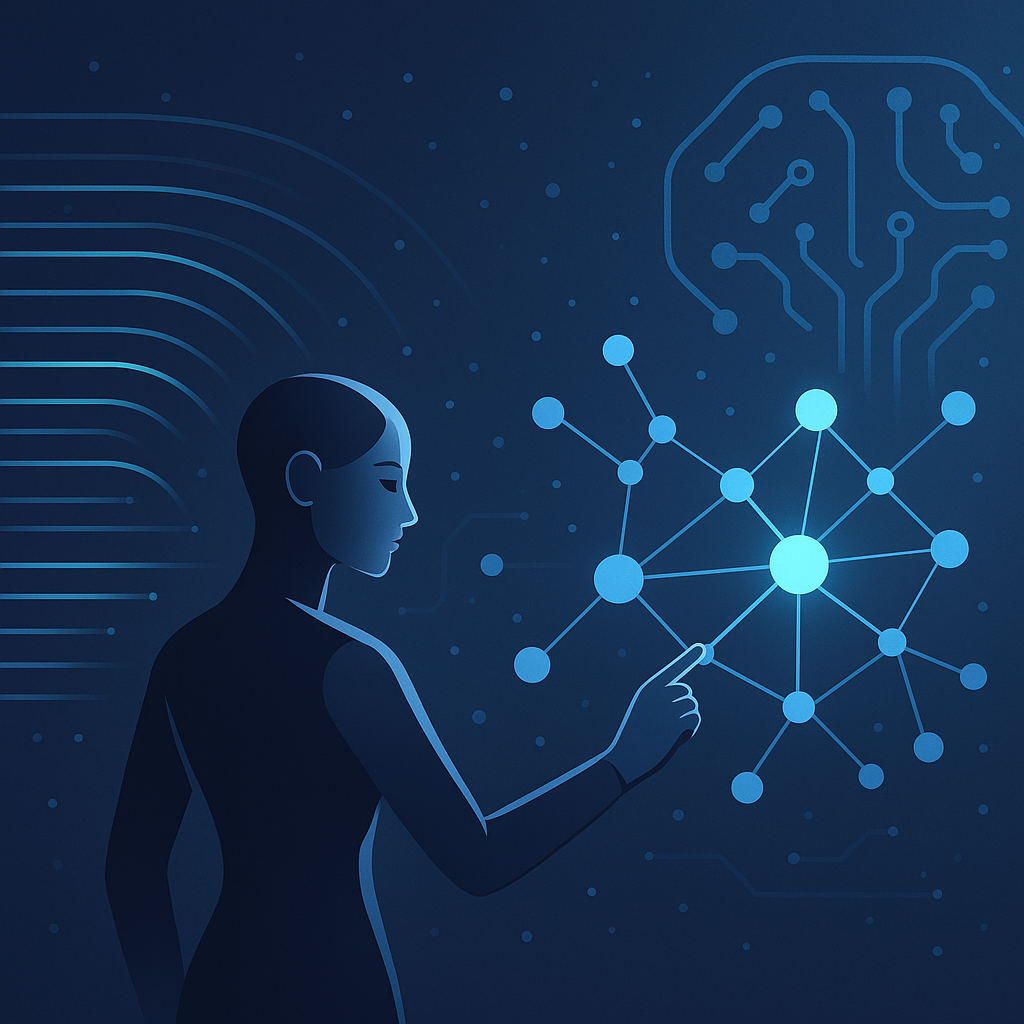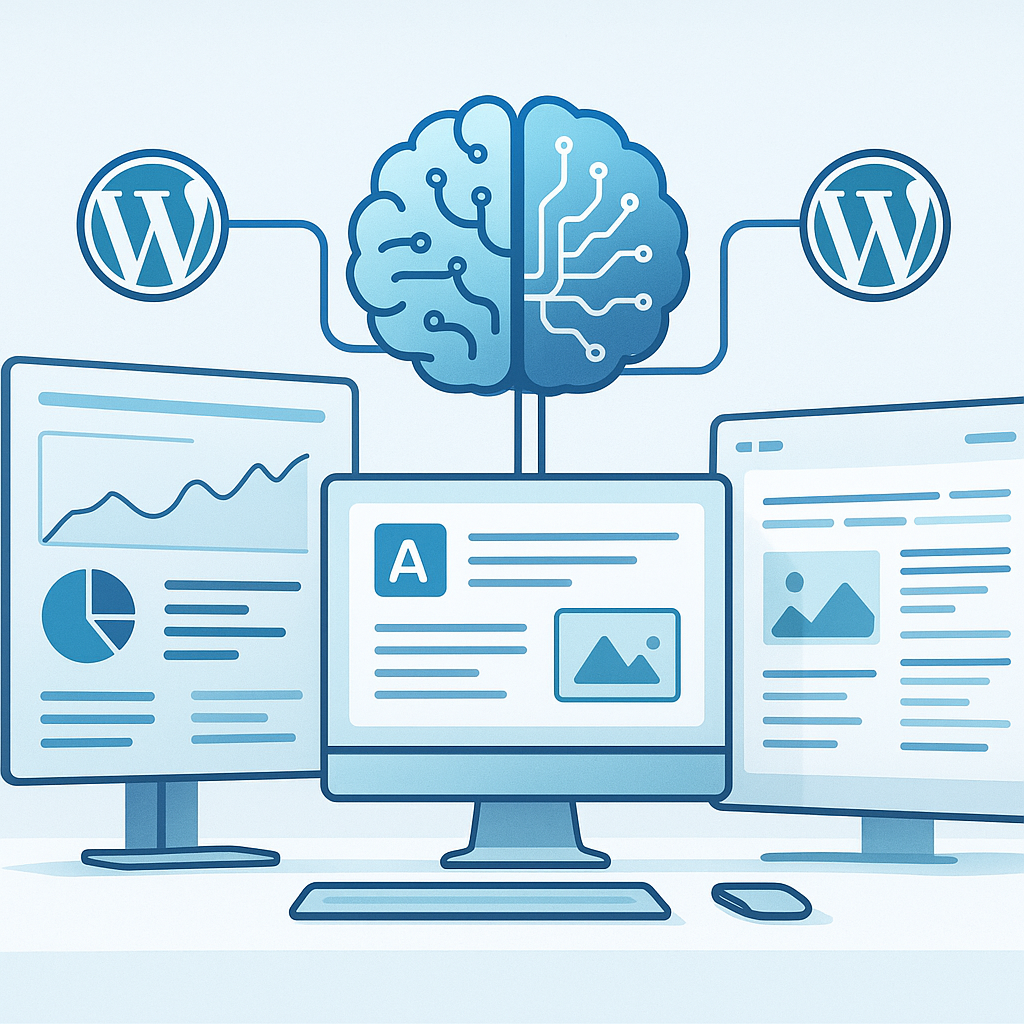
How WordPress Sites Use Intelligent Agents to Transform User Experience
Introduction to Intelligent Agents in WordPress
WordPress is far more than just a content management system; in 2025, it's a dynamic platform empowered by intelligent agents that augment websites with responsive, adaptive capabilities. These intelligent agents autonomous software entities powered by artificial intelligence transform how visitors interact with WordPress sites through personalization, automation, and real-time decision-making.
What Are Intelligent Agents in Artificial Intelligence?
Intelligent agents are AI systems capable of perceiving their environment, processing data, and acting autonomously to complete tasks or achieve goals. They often learn from interactions and improve over time. This makes them valuable assets for any digital ecosystem, particularly WordPress sites seeking to elevate user experience.
Real-World AI Examples Leveraging Intelligent Agents on WordPress
1. AI-Powered Chatbots Enhancing Customer Support
Modern WordPress sites integrate AI chatbots that serve as intelligent agents offering instant, conversational support. Using sophisticated natural language processing (NLP) and contextual understanding, these bots resolve queries, recommend content or products, and even handle bookings or transactions without human intervention.
Example: The WP AI Chat Assistant plugin leverages GPT-4 technology, allowing sites to offer personalized, 24/7 customer interaction that adapts dynamically based on each visitor’s behavior and previous interactions.
2. Personalized Content Delivery Engines
Intelligent agents analyze user data such as browsing history, click patterns, and demographics to personalize content in real-time. WordPress sites use these agents to curate blog posts, products, or offers tailored to individual preferences, significantly increasing engagement and reducing bounce rates.
Example: Utilizing AI-based content recommendation engines integrated via plugins like Jetpack AI or custom API implementations, websites dynamically highlight relevant articles or services that evolve with user behavior.
3. Automated SEO Optimization Agents
Optimizing content for search engines is complex and ongoing. Intelligent agents embedded within WordPress can continuously analyze page performance metrics, competitor data, and keyword trends. They suggest or automatically implement SEO improvements ranging from meta tag adjustments to content restructuring.
Example: AI tools such as RankMath Pro’s AI assistant help WordPress users maintain cutting-edge SEO, updating strategies adaptively based on site analytics and ever-changing search algorithms.
4. Voice-Activated Navigation and Interaction
Voice interfaces powered by intelligent agents enhance accessibility and user experience by interpreting spoken commands. Several WordPress sites use AI voice agents for navigation, content queries, and executing site actions, helping brands connect with audiences in more natural ways.
Example: Integration of voice assistant technologies like Google Dialogflow or Amazon Alexa SDKs into WordPress through custom plugins lets visitors control site navigation or receive spoken content summaries.
5. Predictive Customer Behavior Modeling
Intelligent agents employ machine learning models to predict user intentions and automate personalized marketing efforts. On WordPress e-commerce sites, these agents forecast shopping patterns, customize discounts, and optimize product placements for maximum sales conversion.
Example: WooCommerce stores using AI plugins analyze customer journeys in depth and serve predictive notifications or product recommendations, adjusting based on real-time data streams.
How WordPress Embraces Intelligent Agents Architecturally
Modern WordPress architectures support intelligent agents in several ways:
API-First Design: Enables easy integration of external AI services such as cloud-based machine learning platforms.
Modular Plugins: Allow flexible deployment of AI-powered intelligent agents, adding and updating capabilities without disrupting core functionality.
Data Handling and Privacy: Enhanced support for GDPR and data protection ensures ethical handling of user information utilized by AI agents.
Edge Computing & AI: Emerging WordPress setups leverage edge AI inference to reduce latency and enhance responsiveness of intelligent agents worldwide.
Challenges in Leveraging Intelligent Agents on WordPress
While promising, embedding intelligent agents in WordPress sites involves obstacles such as:
Performance Overhead: AI computations require resources; balancing speed and intelligence is crucial.
Data Privacy Concerns: Managing sensitive user data with AI requires rigorous safeguards.
Integration Complexity: Coordinating various AI services and ensuring they seamlessly interact with WordPress demands technical expertise.
Cost and Maintenance: Continuous updates and AI model training may increase operational costs.
Innovative Future Directions
The frontier of intelligent agents in WordPress hints at exciting possibilities:
Adaptive UX: Interfaces that change layout and functionality dynamically to each visitor’s intelligence profile.
AI-Driven Content Generation: Beyond recommendations, autonomous generation of high-quality content aligned with SEO and engagement principles.
Multi-Agent Collaboration: Cooperative intelligent agents managing different aspects of user experience, from support to analytics, working harmoniously.
Ethical AI Agents: Transparency and control tools empowering site visitors to understand and manage AI interactions.
Conclusion
WordPress sites in 2025 are increasingly leveraging intelligent agents as transformative tools that elevate user experience to new heights. By integrating AI-driven chatbots, personalized content engines, SEO optimization assistants, voice interfaces, and predictive behavioral models, WordPress evolves from a static publishing tool into a smart, responsive digital environment. Despite challenges related to performance and privacy, the continuous advancements in AI and the WordPress ecosystem pave the way for even more sophisticated and adaptive online experiences in the near future.
For website creators, developers, and business strategists, understanding and adopting intelligent agents represents a compelling avenue to engage users more deeply, automate complex workflows, and maintain competitive edge in a rapidly evolving digital landscape.







